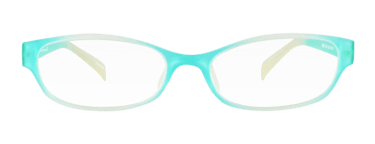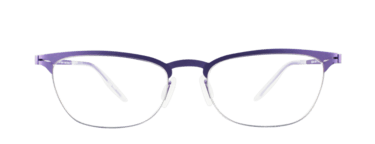Dry Eye Syndrome
Dry eye syndrome is a persistent irritation to the eyes due to a lack of adequate fluid on the eye’s surface. Its effect can vary from a mild, yet frequent annoyance to an inflammation of the eye’s frontal tissues.
 |
|
Rubbing your dry eyes will only cause more irritation. |
Symptoms
Symptoms are usually characterized by a constant stinging, itching and dryness to the eye. Your ophthalmologist will usually consider these as representing dry eye syndrome, but sometimes a few tests are done to confirm.
There a few symptoms to watch out for when it comes to dry eye syndrome: an irritating feeling to the eye for example, or a feeling of having something in your eyes. Excessive wetness or teary eyes can also be symptom of the syndrome: due to the dryness of the eyes, the watery component of tears becomes overproduced. Before concluding the diagnosis, your ophthalmologist may run some tests, like measuring the amount of tears you produce.
Causes
When it comes to the eyes, you can think of your tears as their natural protection. Tears keep our eyes safe and well lubricated. Tears wash out foreign matter like sand, dust and dirt, and also defuse the bacteria present in eyes. Basically, tears are needed to maintain healthy and clean eyes. When you have dry eye syndrome, the tear ducts produce an inadequate amount or quality of tears. It could also be that some compounds present in our tears maybe the cause of rapid evaporation.
There are many factors that can cause dry eyes syndrome.
- Staring at electronics that emit glare like the computer, televisions and even hand held devices that have screens can cause irritation to the eyes.
- Geographical location, especially dry, windy and dusty areas.
- Aging, especially in menopausal women.
- Appliances that cause dryness to the eyes like a constant and direct exposure to air conditioners, electric fans and heaters.
- Some medications have side effects that can cause dry eye syndrome; it’s important to check the label for any side effects. Certain birth control pills, blood pressure medicines, Parkinson’s disease medications, seasonal allergy medicines and antidepressants are known to cause dry eyes.
- Dry eyes are extremely common among contact lens wearers; it is the number one complaint of this group.
- Dry eye can also be a symptom of diseases like lupus or rheumatoid arthritis.
 |
|
Contact lens wearers' #1 complaint is dry eyes. |
Women are more likely to suffer from dry eyes, possibly because of hormonal changes. Men are at greater risk as they get older. Also, popular cosmetic surgeries such as blepharoplasty (eyelid surgery) can lead to dry eye syndrome, because such a procedure can in some cases lead to improper closure of the eyelids, thus causing the eyes to dry.
 |
|
Synthetic tear drops may be prescribed to provide relief from dry eyes. |
Treatment
Dry eye syndrome may not be cured completely, depending on what is causing the symptoms, but most of the symptoms (like itching and stinging) can be managed with eye drops made of synthetic tears. While using synthetic tears, you should avoid using contacts lenses, or if it is a necessity wait at least 20 minutes before inserting the lenses. Fake tear drops can help lessen the irritation and also moisten the eye. Don’t use drops that only treat the redness of the eyes, as most of these do not contain artificial tears, and thus cannot lessen the itchiness and nuisance in the eyes. These drops also require you to constantly add more drops over time (increase your dose) to achieve the same effect.
Other methods involve using plugs for the tear duct that lessen the drainage of the tears and aids in maintaining well lubricated eyes. A change in your diet can also help: adding more fish that’s rich in omega-3 fatty acids (herring, cod, salmon and sardines) may reduce your risk for dry eyes.
Using protective glasses can help a lot if the cause of your dry eye syndrome is due to a dry and dusty climate. Also, using a humidifier can help dampen the air around you, especially when you’re confined in a small room like an office space.
The saying "drink 8 glasses of water a day" can prove to be a remedy too. Being well hydrated not only keeps your body healthy and its thermal balance well regulated, but it can also keep other physical aspects, like the eyes, well lubricated. You don’t have to make your beverage exclusively water, you can also drink fresh squeezed fruit juices, milk or veggie juice.
If medications are the culprit behind your dry eyes syndrome you can ask your doctor for other alternative medications. Before using any over-the-counter medications, be sure to consult your doctor. 
Recommended for you












